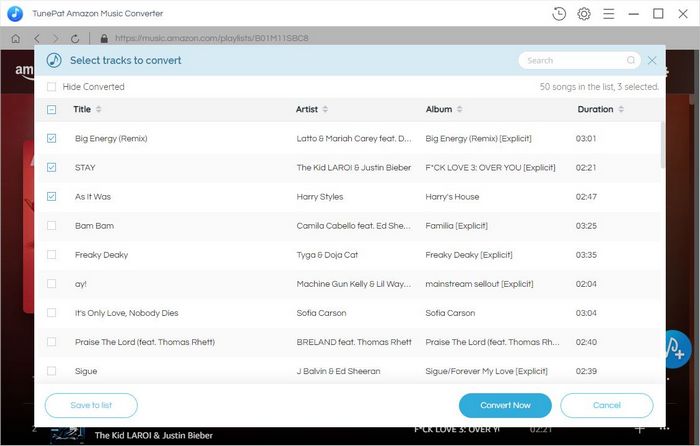Fix no such host error in Docker Compose with host.docker.internal

Understanding the no such host Error in Docker Compose
When working with Docker Compose, you might encounter a no such host error when trying to connect to the host machine from within a container. This typically happens when the container cannot resolve the hostname of the Docker host, especially when using host.docker.internal. This hostname is a special DNS name that resolves to the internal IP address of the host machine, allowing containers to communicate with services running on the host.
The error often arises in scenarios where:
- The container needs to access a service running on the host machine.
- The Docker environment is misconfigured or not fully compatible with the host.docker.internal resolution mechanism.
Common Causes of the Error
- DNS Resolution Issues: The container’s DNS configuration might not be set up to resolve
host.docker.internalcorrectly. - Network Mode: The network mode of the container or service might not support host-internal communication.
- Platform Differences: Behavior can vary between Docker Desktop on Windows/macOS and Linux, as Docker Desktop uses a VM that affects networking.
- Misconfigured
docker-compose.yml: Incorrect network settings in the Docker Compose file can prevent proper resolution.
Step-by-Step Solutions
1. Verify Docker Environment
Ensure your Docker environment supports host.docker.internal. On Docker Desktop (Windows/macOS), this is typically enabled by default. On Linux, you might need to configure it manually.
For Linux Users: Add the following to your container’s network settings to ensure DNS resolution:
version: '3.8'
services:
app:
image: your-image
networks:
- mynetwork
networks:
mynetwork:
driver: bridge
ipam:
config:
- subnet: 172.20.0.0/16
gateway: 172.20.0.1
2. Explicitly Set extra_hosts
Add host.docker.internal to the extra_hosts section in your docker-compose.yml file to ensure the container can resolve the host:
version: '3.8'
services:
app:
image: your-image
extra_hosts:
- "host.docker.internal:host-gateway"
Explanation:
- host-gateway resolves to the IP address of the host machine.
- This method bypasses DNS resolution issues and directly maps the hostname to the host’s IP.
3. Use host.docker.internal with Service Names
If your container needs to communicate with another service in the same Docker Compose setup, use the service name instead of host.docker.internal. Docker Compose automatically resolves service names within the same network.
Example:
version: '3.8'
services:
app:
image: your-image
depends_on:
- db
db:
image: postgres
Access the database from app using db as the hostname, not host.docker.internal.
4. Check Network Mode
Ensure your service is not using the host network mode, as this can cause host.docker.internal to resolve incorrectly. Use the default bridge network instead:
version: '3.8'
services:
app:
image: your-image
network_mode: bridge
5. Test DNS Resolution Inside the Container
To debug, start a container and test DNS resolution manually:
docker run --rm your-image nslookup host.docker.internal
If the resolution fails, check your Docker daemon’s configuration or network settings.
6. Update Docker and Docker Compose
Ensure you’re using the latest versions of Docker and Docker Compose, as older versions may have bugs affecting host.docker.internal resolution.
Advanced Troubleshooting
Inspect Docker Network Configuration
Use docker network inspect to verify the network settings:
docker network inspect bridge
Look for the IPAM configuration and ensure it aligns with your requirements.
Use docker-compose.override.yml
If you’re working in a development environment, use an override file to tweak settings without modifying the main docker-compose.yml:
version: '3.8'
services:
app:
extra_hosts:
- "host.docker.internal:172.17.0.1" # Replace with your host IP
Example: Fixing a Common Scenario
Scenario: A Python app in a container cannot connect to a PostgreSQL database running on the host machine.
Solution:
1. Add extra_hosts to the app’s service:
version: '3.8'
services:
app:
build: .
extra_hosts:
- "host.docker.internal:host-gateway"
db:
image: postgres
ports:
- "5432:5432"
- Update the app’s configuration to use
host.docker.internalas the database host:DATABASE_URI = "postgresql://user:password@host.docker.internal:5432/dbname"
Preventing Future Issues
- Document Network Configurations: Clearly document how services communicate, especially when using
host.docker.internal. - Test Across Platforms: If your setup is cross-platform, test on both Docker Desktop and Linux to ensure compatibility.
- Monitor Docker Updates: Stay informed about Docker updates that may affect networking behavior.
FAQ Section
Why does `host.docker.internal` work on Docker Desktop but not on Linux?
+Docker Desktop uses a VM (e.g., Hyper-V on Windows), which handles `host.docker.internal` resolution internally. On Linux, Docker runs natively, and DNS resolution may require manual configuration or specific network settings.
Can I use `localhost` instead of `host.docker.internal`?
+No, `localhost` resolves to the container itself, not the host machine. Use `host.docker.internal` or explicitly map the host’s IP address.
How do I find the IP address of the Docker host?
+On Docker Desktop, use `ipconfig` (Windows) or `ifconfig` (macOS) to find the gateway IP. On Linux, check the Docker daemon’s network configuration or use `ip addr`.
Does `host.docker.internal` work with Docker Swarm?
+Yes, but ensure all nodes are configured to resolve `host.docker.internal` correctly, especially in multi-node setups.
What if `extra_hosts` doesn’t resolve the issue?
+Check Docker’s DNS configuration (`/etc/docker/daemon.json`) and ensure the container’s network mode is not set to `host`.
By systematically addressing DNS resolution, network configuration, and platform-specific nuances, you can effectively resolve the no such host error related to host.docker.internal in Docker Compose.

